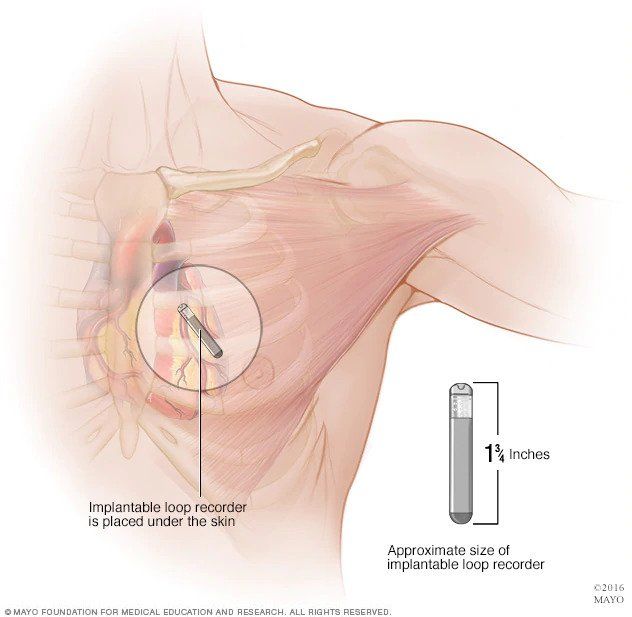Loop Recorders
in Daytona Beach & Titusville, FL
It seems like every monitor you wear, the day after it comes off is when your problems show up again. Loop recorders offer heart monitoring over years to ensure even the most infrequent of episodes are recorded.
No one plans on having heart problems, but if you do you need to find a doctor you can trust. At Complete Cardiology Care we staff Cardiologists and Electrophysiologists that treat patients with loop recorders in Daytona Beach, Ormond Beach, Palm Coast, Deltona, Deland, and the surrounding areas.
Implanted in 15 minutes
Done in office or outpatient
Diagnose Various Arrhythmias
Determines Cause of Syncope
Understand "palpitations"

What is a Loop Recorder?
An loop recorder or an insertable cardiac monitor (ICM) is a heart recording device. It is a small device, about the the size of a flat AAA battery. It is implanted in the body under the chest skin. It has several uses. The most common ones include looking for causes of fainting, palpitations, very fast or slow heartbeats, and hidden rhythms that can cause strokes. During a loop recorder implantation, your doctor places the small device under your skin, on your chest wall, overlying the heart. The machine works as an electrocardiogram (ECG). It constantly picks up electrical signals from your heart. This can help find abnormal heart rhythms that can cause many problems such as fainting.
They offer home monitoring as well so if an event occurs, your doctor is either notified same day or the next day.
Stop coping with your chest pains and get treated today
If you are curious how we can help you with a loop recorder in Daytona Beach, FL please reach out to us. We are currently accepting new patients. Complete Cardiology Care staffs Cardiologists and Electrophysiologist that serve patients in Ormond Beach, Daytona Beach, New Smyrna Beach, Port Orange, Deltona, Deland, and the surround areas.
Our Cardiologists and Electrophysiologist take nearly all insurances. We accept Aetna, AARP Medicare Complete, Blue Cross / Blue Shield, Cigna, Florida Healthcare, Florida Hospital Care Advantage, Freedom Health, Health First Health, Humana PPO - out of network benefits apply, Medicare, Optimum Healthcare, Railroad Medicare, Tricare, United Healthcare, VHN, Wellcare.
We are also a partner with the VA and are proud to serve those who have served our country!
Self Pay Cardiology services are available too! Call and ask for our price list.

